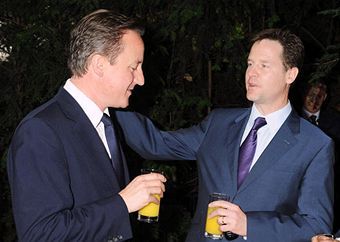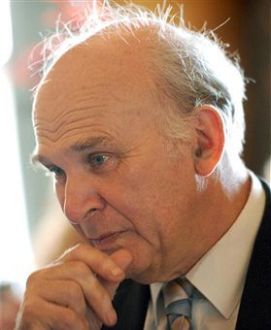Cable’s Survival is a Sign of Cameron’s Strength
James understands the dynamics of coalition government rather better than Simon Heffer. This may not surprise you. Mr Heffer complains that by letting Vince Cable survive – albeit in gelded form – while dumping the likes of Lord Young for other more trivial indiscretions, the Prime Minister is guilty of setting double standards. One would be appalled if this were not the case. And the double standard – for such there certainly is since Lib Dems may, indeed must, be opposed to at least some parts of coalition policy – reminds us that this is a Tory government leavened by the Liberal Democrats, not a Liberal Democrat government with added



